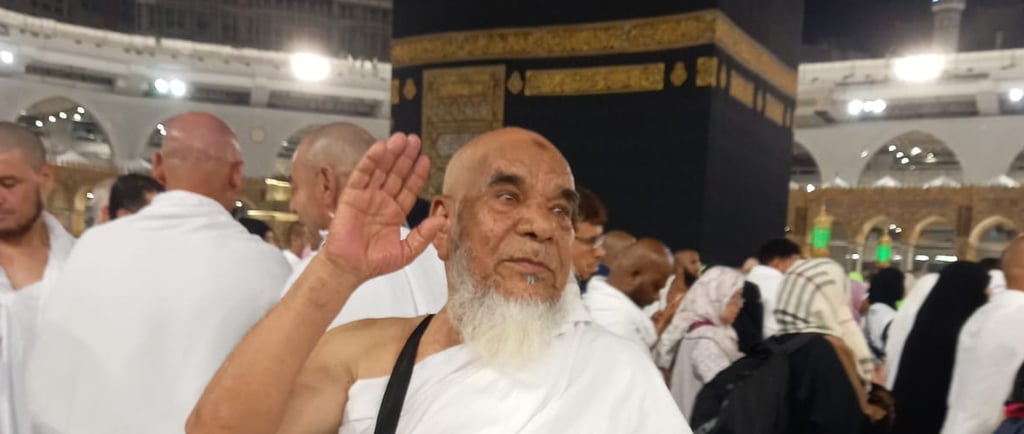UMRAH 2025 LATEST JULY UPDATES
Umrah 2025: How Saudi Arabia is making the pilgrim experience safer with smart bracelets and apps.
7/30/20253 min read


Saudi Arabia has launched new digital and safety tools to improve the Umrah experience in 2025.
Major upgrades focus on elderly support, crowd control, and pilgrim services in Makkah and Madinah.
The Ministry of Tourism is also cracking down on unsafe accommodations to protect visitors.
With the new Umrah season starting in 2025, Saudi authorities are making clear that the focus is not just on numbers, but on the people behind them. The aim this year is simple: make the pilgrimage safer, easier, and more spiritually fulfilling. While millions are expected to visit the holy cities of Makkah and Madinah, the Kingdom is working to remove the usual stress points, whether it’s confusion at busy mosques, difficulty for elderly visitors, or problems with hotel bookings.
Instead of big slogans or ambitious promises, this year’s changes are grounded in real action. From helpful digital tools to safety gear for vulnerable groups, Saudi Arabia is pushing practical solutions. And with tighter inspections on tourist services, there's also a clear message: quality and safety matter more than ever.
These new moves show how the Kingdom is managing modern challenges without losing sight of the spiritual heart of Umrah.
The Promotion of "Rushd" app
One of the main upgrades this year is digital, and very hands-on. The Ministry of Islamic Affairs has rolled out a campaign in Madinah to promote the "Rushd" app, designed specifically for pilgrims.
What the app offers:
Electronic Quran and daily prayer times (based on Umm Al-Qura)
Qibla direction via mobile
A multilingual virtual reality guide to help users learn how to perform Umrah and Hajj
An Islamic e-library and access to trusted religious reference sources
The campaign is being run at key visitor areas around the Prophet’s Mosque, including historic locations. It’s not just about downloading an app, it’s about helping people use it in a meaningful way while they’re on their journey.
Bracelets That Help, Not Just Track
To support vulnerable pilgrims, like children, the elderly, and visually impaired visitors, the General Authority for the Care of the Grand Mosque and the Prophet’s Mosque has launched smart safety bracelets.
Here’s what they do:
Store emergency contact information
Allow for quick help if someone is lost or in distress
Offer peace of mind for families and groups during prayer or movement in crowded areas
This isn’t about surveillance. It’s about safety, especially in a setting where it's easy to get separated or overwhelmed.
Fixing the Basics: Infrastructure, Training, and Tech
A lot of what makes or breaks a pilgrim’s experience is behind the scenes: how smooth the transport is, how well the crowd is managed, or how clean and accessible public areas are. To that end, 16 new initiatives have been rolled out in Madinah under the Pilgrim Experience Program.
What’s being improved:
Road access and pathways near religious sites
AI-powered crowd management tools
On-ground staff training in visitor care
Faster emergency response systems
In total, 89 different projects across 23 government agencies are currently active, covering everything from security and tourism to health and logistics. According to officials, 95% of these projects are already completed or in final stages.
Tougher Standards for Accommodation in Makkah
Pilgrims shouldn’t have to worry about where they’re staying, especially in a city as sacred as Makkah. That’s why the Ministry of Tourism has stepped up inspections and closed 25 non-compliant facilities just this July.
The reasons included:
Operating without a license
Poor building maintenance
Fire safety concerns
This crackdown is part of the wider "Our Guests Come First" campaign, which also encourages pilgrims to report issues through the Unified Tourism Center (dial 930).
Support That’s Easy to Reach.
It’s easy to feel overwhelmed in a huge place like the Prophet’s Mosque, especially if you're a first-timer or don’t speak Arabic. That’s why two service centers within the mosque courtyards have played a key role in helping pilgrims feel supported.
In 2024 alone, these centers:
Assisted over 188,000 visitors
Offered support in multiple languages
Provided wheelchairs and mobility aids
Gave out wristbands for children and elderly visitors
These centers focus on what matters most, comfort, clarity, and calm during worship.
